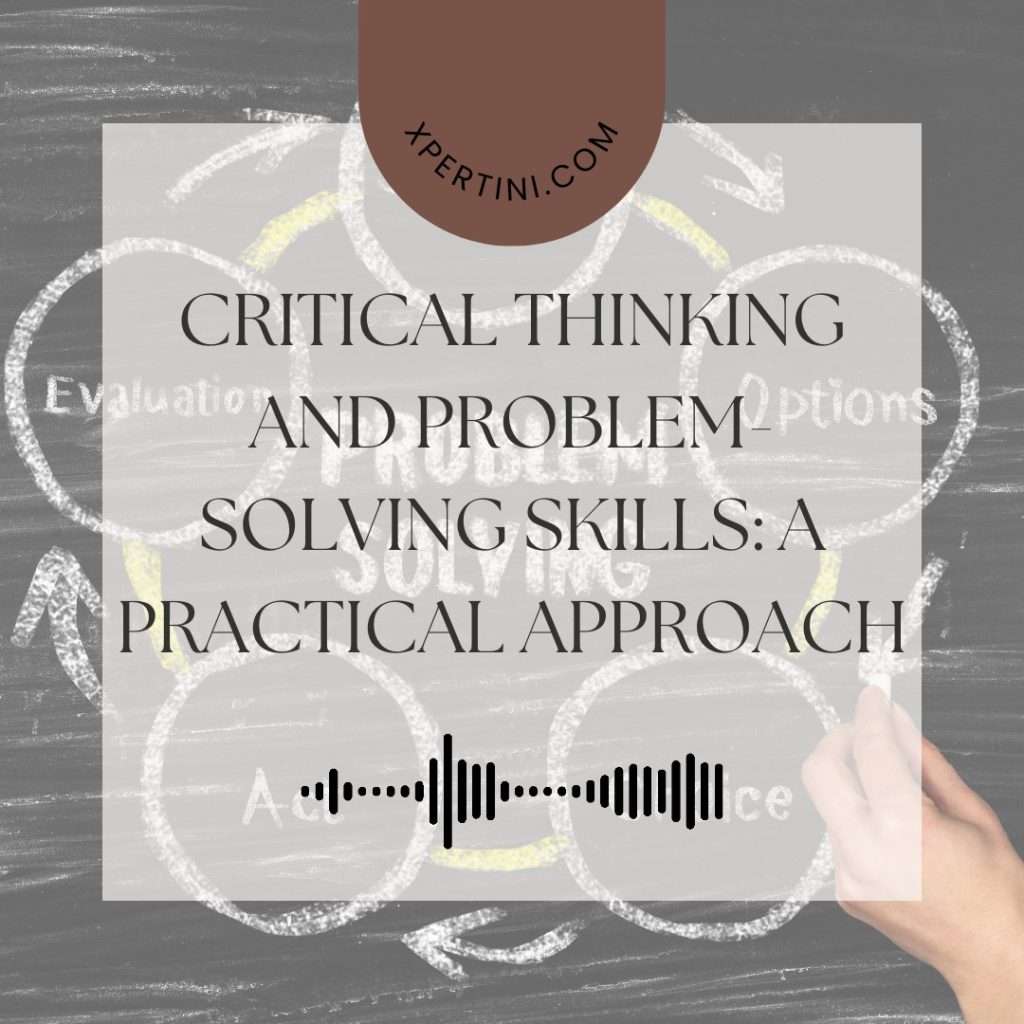Critical Thinking and Problem-Solving Skills: A Practical Approach
Course Summary
This course delves into the intricacies of critical thinking, decision-making, and problem-solving, essential skills for navigating today’s complex and professional landscape. Students explore rational decision-making models, risk assessment strategies, and ethical considerations, gaining practical insights into applying these concepts in real-world scenarios.
Through interactive lessons and case studies, learners discover the significance of analytical thinking in diverse fields such as business, healthcare, and scientific research. They learn to evaluate information critically, identify patterns, and make evidence-based decisions, honing their abilities to adapt to uncertainty and ambiguity.
The course also emphasizes the importance of effective communication, teamwork, and conflict resolution in collaborative problem-solving. Students delve into techniques for consensus-building, conflict resolution, and leveraging diverse perspectives, enhancing their capabilities to work synergistically in team environments.
Furthermore, the curriculum delves into career opportunities requiring strong critical thinking skills, guiding students in developing a personalized career roadmap aligned with their strengths and aspirations. The emphasis on continuous learning and self-assessment empowers learners to evolve professionally and stay abreast of industry trends and advancements.
Overall, this course equips students with the tools, strategies, and mindset necessary to thrive in today’s competitive job market, empowering them to make informed decisions, solve complex problems, and embark on fulfilling career paths that leverage their critical thinking abilities.
Course Overview
This course equips learners with essential critical thinking and problem-solving skills necessary for success in various professional domains. Through practical exercises and real-world examples, participants will develop a robust toolkit to tackle complex challenges and make informed decisions.
Course Objectives
Understand the fundamentals of critical thinking and problem-solving.
Apply logical reasoning and analysis to evaluate information effectively.
Develop creative solutions to problems through innovative thinking.
Enhance decision-making abilities based on sound reasoning.
Improve communication and collaboration skills for problem-solving.
Utilize technology and data-driven approaches in critical thinking processes.
Navigate ambiguity and uncertainty with confidence.
Foster a growth mindset to embrace challenges and continuous learning.
Cultivate a systematic approach to problem identification and resolution.
Prepare for diverse career opportunities that require strong critical thinking skills.
Course Outcomes
Define critical thinking and its significance in decision-making.
Demonstrate the ability to analyze complex problems using logical frameworks.
Develop creative problem-solving strategies to address real-world challenges.
Apply data-driven approaches to gather and interpret information effectively.
Collaborate in teams to solve problems and communicate solutions coherently.
Navigate uncertainty and make informed decisions based on evidence.
Develop a growth mindset to embrace challenges and pursue continuous improvement.
Assess their own critical thinking skills and identify areas for development.
Apply critical thinking skills in various contexts, including business, technology, and social issues.
Explore career pathways that require strong critical thinking and problem-solving abilities.
Course Audience
Students pursuing careers in business, management, and entrepreneurship.
Professionals seeking to enhance their critical thinking and problem-solving skills.
Individuals interested in developing a strategic mindset for decision-making.
Anyone looking to improve their analytical and reasoning capabilities.

